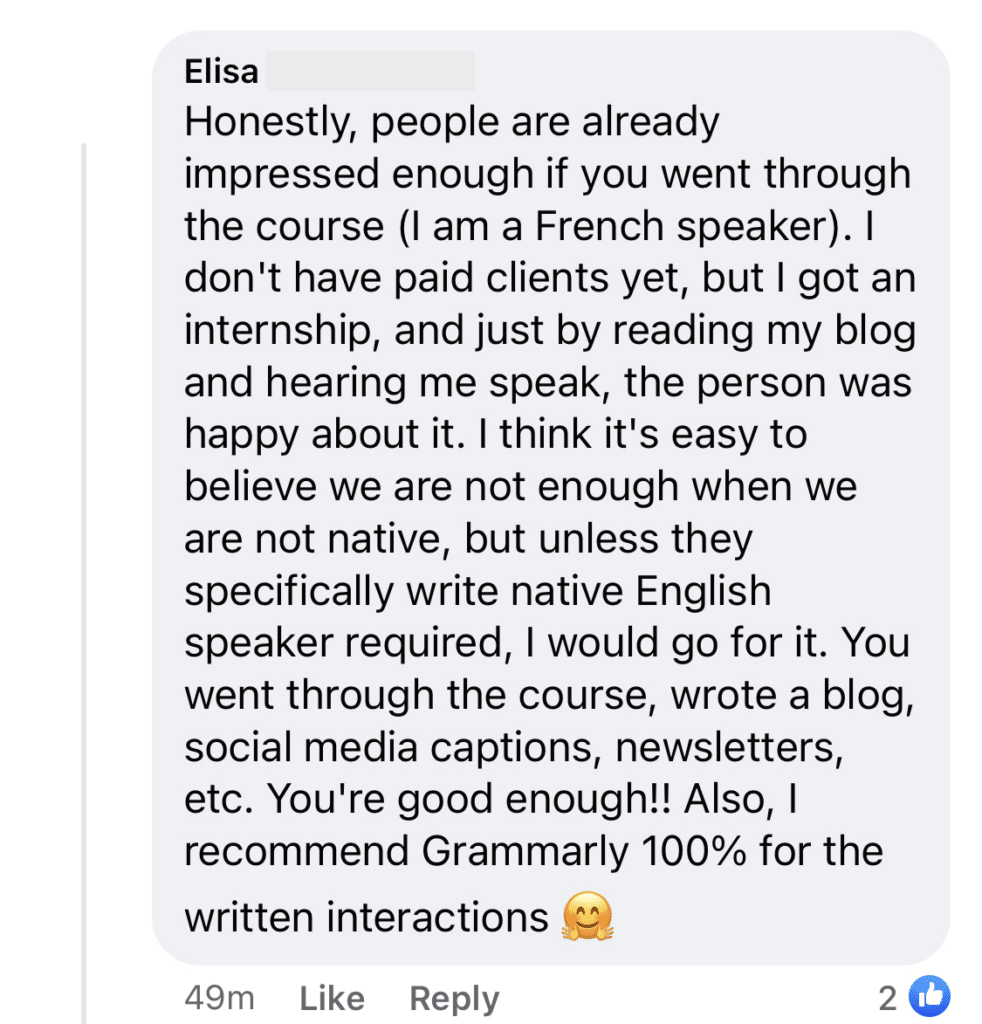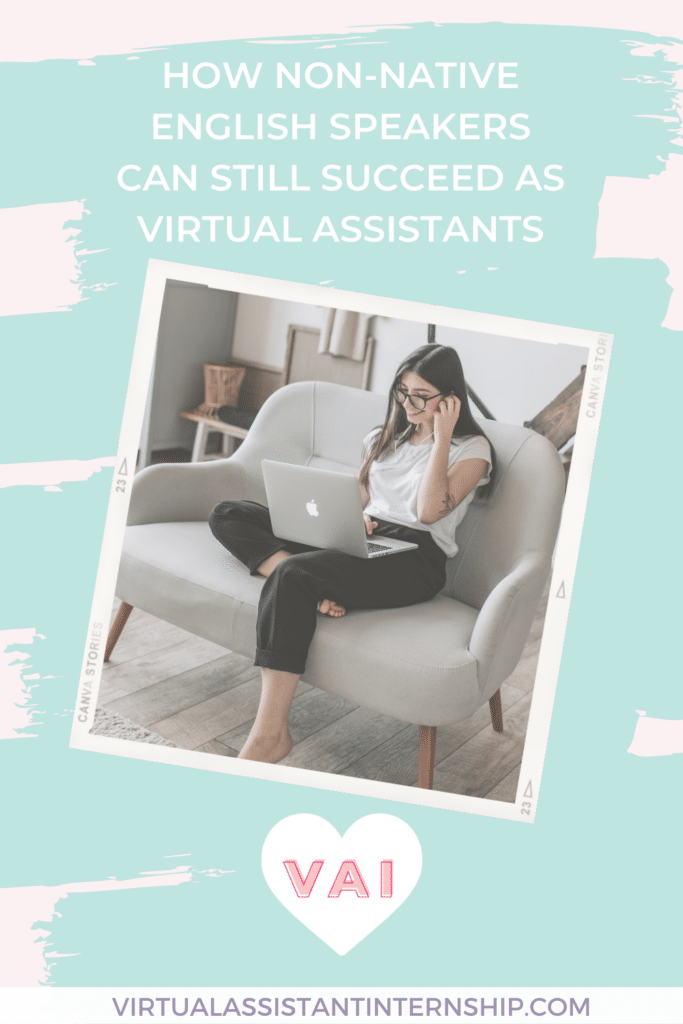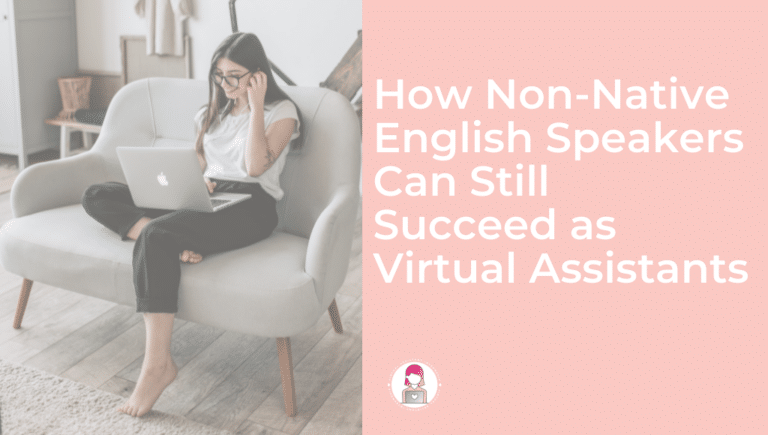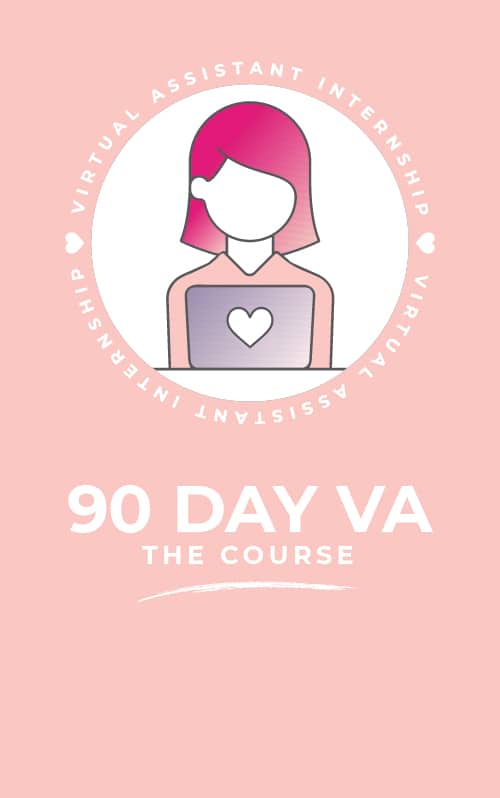While it’s true that a lot of virtual assistants speak English as a first language it is most certainly not a requirement, which so many people find shocking!
There is a lot of apprehension for people who aren’t native English speakers; it can be scary to work with native speakers when you don’t have the full range of vocabulary or have an accent.
But let me tell you: business owners don’t care.
As I always say, clients will only care about one thing, and that is whether or not you can do the work. If you’re a badass at your niche, being a native speaker is completely irrelevant.
A ton of my 90 Day VA students are non-native English speakers and when I spoke to them, they actually found it an advantage to speak English as a second language!
So, here are some ways they shared that non-native English speakers can still succeed in the remote work world.

Expand Your Horizons
While people think that speaking English as a second language will decrease the number of jobs available to apply to, it will do the complete opposite.
Being a non-native English speaker is not a detriment; it’s an extra door for you to get your foot in.
A lot of my students have found that speaking more than one language broadens their options, and they are able to offer their services to more clients than people who only speak English.
At Virtual Assistant Internship, we actually get requests all the time for virtual assistants that speak another language alongside English, so those job postings are really great for students who speak English as a second language.
You can also offer your services to clients who speak your mother tongue, so in reality, you’re increasing the number of people you can pitch to threefold!

Offer Specific Services
Let’s be honest here: English is a hard language!
Even I will admit that, and I have a degree in education.
For a lot of non-native English speakers, the idea of having to constantly write and communicate in English can be really daunting.
That’s why a lot of my students who learned English as a second language recommend focusing on specific services that you feel your strengths lie in.
In 90 Day VA there’s a blogging module that even native English speakers have a difficult time getting through, but it’s only one module out of over ten!
That means you still have plenty of other skills to learn and offer that won’t revolve around having to constantly speak or write English, such as podcast management or video editing.
If you did want to pursue writing, social media management, marketing, or another niche that may require a deep understanding of language, you can still do it!
Find clients in your native language that you can offer these services to, and focus on other services for English-speaking clients.

Do the Mindset Work
It feels like beating a dead horse whenever I say this, but this is one of the most important things you can do to succeed as a virtual assistant.
Your mindset dictates how willing you are to jump into the unknown and take the risks necessary to prosper.
All of my non-native English speaking students agree that speaking English as a second language can be a big mental hurdle to overcome when starting a career as a virtual assistant. It’s already hard enough to jump into a new career, so adding this to it can make it much more difficult to get going.
That’s why they also all agree that having the right mindset was crucial in their success. There’s a lot of fear of rejection when you’re applying to a job that’s not in your first language, but with the right mindset, you can overcome this.
I have little mindset lessons sprinkled throughout 90 Day VA because I know how difficult it can be to psych yourself up. Trust me, I’ve been through it too, and those lessons are just me teaching you how I was able to get to where I am today.
Impostor syndrome is real and a huge pain in the butt, so it’s super important to go through the mindset lessons and remember that you can do this!

Just Jump In
When I spoke to former VAI team member Christine Ofner for my podcast (you can check the episode out here), she emphasized that non-native English-speaking virtual assistants need to just go for it.
That doesn’t just mean applying for jobs; it means ingraining yourself into the remote work world by joining groups, meeting people, and offering help to others.
She even mentioned that she got her first job not by applying for it, but by chance after speaking to a fellow member of a VA Facebook group. They needed a VA and she had the knowledge to provide the service. A casual chat turned into a discovery call and BOOM! She had a job!
Another former 90 Day VA student and non-native English speaker, Elisa, also shared her experience about becoming a VA:

As they both said, go for it! If you’ve gone through the course, you have everything you need in order to land those remote jobs, regardless of whether or not English is your first language.
And if you’re trying to get the skills to become a virtual assistant, 90 Day VA will be open for enrollment this month! You’ll be able to learn about the hottest niches for virtual work so that you can join our remote work revolution.
Want to learn more? Check out my FREE masterclass here.




